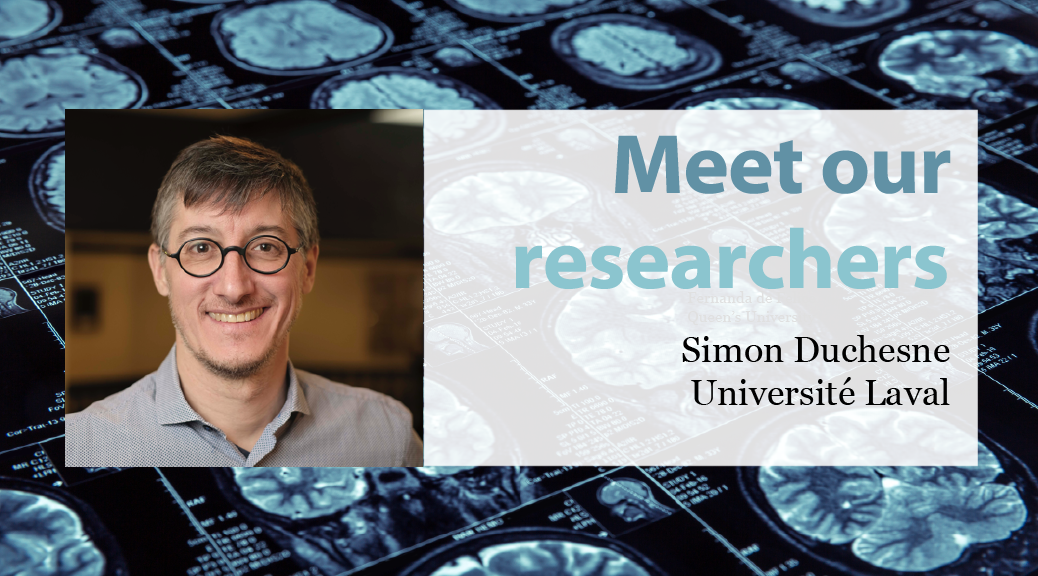
Meet our Researchers: Simon Duchesne, Université Laval
As a biomedical engineer, I don’t have your typical background for someone researching Alzheimer’s disease and other dementias. In fact, if you had told me 18 years ago that dementia would be my main field of research, I’d be surprised. Back then, I was most interested in diagnostic radiology—the field of medicine that uses imaging exams to aid in diagnosis—for the planning of epilepsy surgery.
My path eventually led me to the Montreal Neurological Institute in 1999, where I worked on my PhD on epilepsy. However, since there are many researchers at the Institute, soon a friend of mine suggested that I used the same techniques as those for epilepsy surgery to have a look at a dataset for a disease called Alzheimer’s instead. At the time, I had little idea how big of a problem this was.
Upon examining the data, I realized that I might be able to address a common problem for people with dementia—early diagnosis.
See, one of the exams I use as a radiologist is magnetic resonance imaging, or MRI: a medical device that uses radio waves to take detailed pictures inside your body in a non-invasive and painless way. MRI scans are a vital part of diagnosis, allowing doctors to properly diagnose injury and disease. This is also directly applicable to the brain, as MRIs are able to see with great details its various structures.
Video: Dr. Simon Duchesne, Associate Professor in the Radiology Department at Université Laval, talks about his research on early diagnosis of dementia through MRI. Dr. Duchesne received a Biomedical Grant from the Alzheimer Society Research Program (ASRP) 2016 competition. Most recently, Dr. Duchesne was the Chair of the 2018 ASRP Biomedical Panel.
Twelve years later, I head my own lab, located at the CERVO Research Center in the Quebec City Mental Health Institute. I am still continuing my research into early detection and diagnosis. I view my research as taking measurements: take MRI scans of brains of people with dementia, compare them to MRIs of people without the disease and identify the differences that may indicate early symptoms.
I try to include other techniques in my models to predict the onset of dementia even earlier—the goal that I’ve given to my lab is to be able to predict dementia not five, nor ten, but a full 25 years before it starts. This is a selfish goal! The reason being that in 2022, I’m going to be 50 years old myself, and I certainly want to know what’s going to happen to me! Of course, I fully plan to have this technique benefit the most people; this is why, with colleagues from McGill, we have launched a venture to bring these technologies to market, reaching people outside academia and into the clinical world.
Overall, I am hopeful for the future of dementia research. While I am researching one aspect of the aging brain, other people are looking at other areas, like inflammation, vascular response, and of course the amyloid and tau proteins that are linked to the cause of dementia. If we could predict disease onset 25 years before, then all of these pharmacological and non-pharmacological interventions would have the time to intervene and slow down, or reduce the speed of the disease. This has the best chance of working – in the long run.
With all this research going on, eventually everything will be brought together in a way that everyone can understand, much more, of what is going on in the brain as it is affected by dementia. Not only will we see more therapeutic opportunities, but we can also see a cure for dementia as well.
Much remains to be done, and we are grateful for your continuing support.
Dr. Duchesne is also this year’s Chair of the Biomedical Peer Review Panel of the Alzheimer Society Research Program.